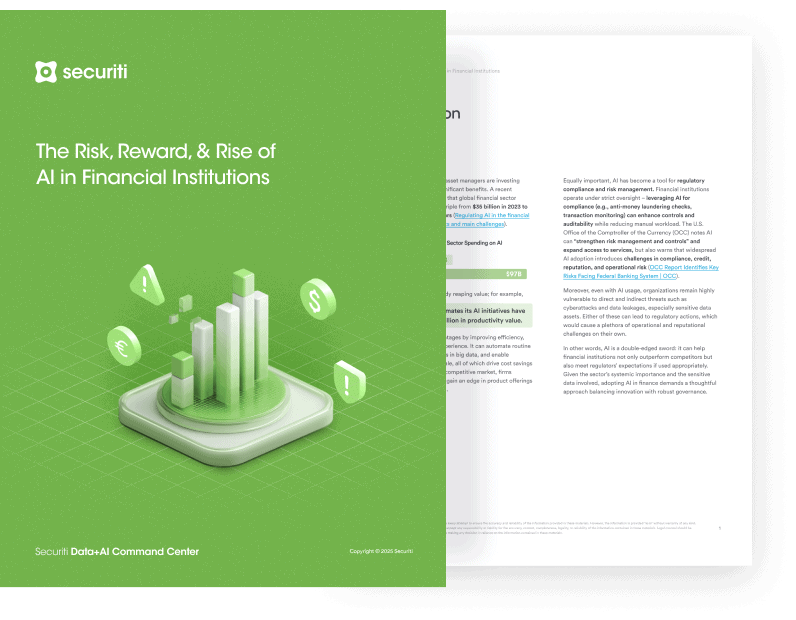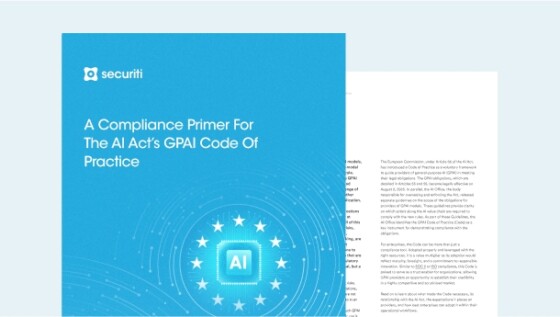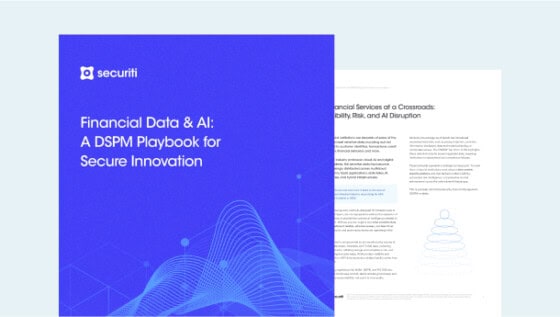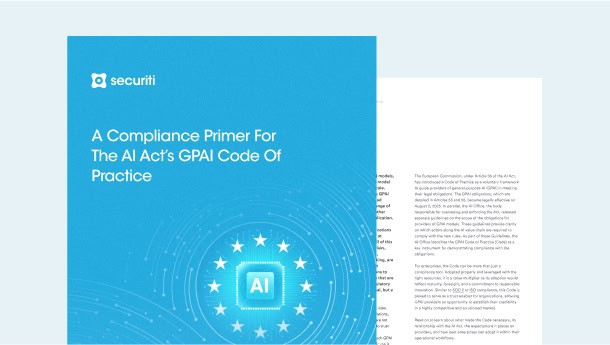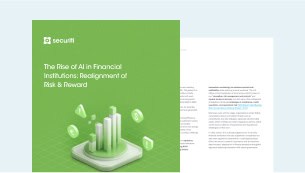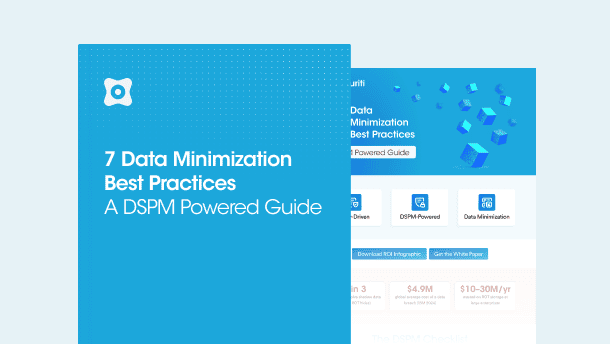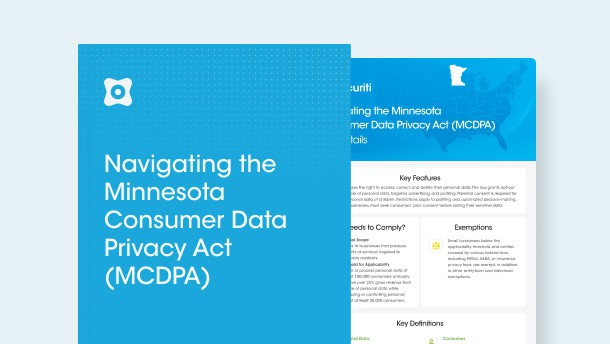Financial institutions are embracing AI for fraud detection, credit scoring, algorithmic trading, personalized customer experiences, and regulatory reporting. The efficiency, speed, and predictive capabilities of AI provide competitive advantages in an increasingly digital marketplace.
AI adoption brings risks such as biased decision-making, model hallucinations, regulatory non-compliance, sensitive data leakage, and susceptibility to adversarial attacks. Without proper governance, these risks can lead to financial losses, reputational damage, and regulatory penalties.
Institutions must implement frameworks like AI TRiSM and DSPM to manage trust, risk, and security. By embedding governance, automating compliance, and continuously monitoring data flows, banks and insurers can safely innovate while protecting customers and staying compliant.
Data Security Posture Management (DSPM) ensures that sensitive financial data used in AI systems is discovered, classified, governed, and secured. This helps prevent data breaches, ensures compliance with frameworks like GDPR and DORA, and builds trust in AI-driven financial services.
Emerging regulations like the EU AI Act, NIST AI RMF, and sector-specific frameworks demand transparency, accountability, and risk controls for AI. Financial institutions should adopt automated compliance tools that map AI models to regulatory obligations, produce audit-ready reports, and enable proactive governance.
When implemented responsibly, AI can boost revenue growth, reduce fraud, improve customer satisfaction, and streamline operations. Institutions that balance risk and reward with governance frameworks can accelerate adoption while maintaining compliance and trust.
